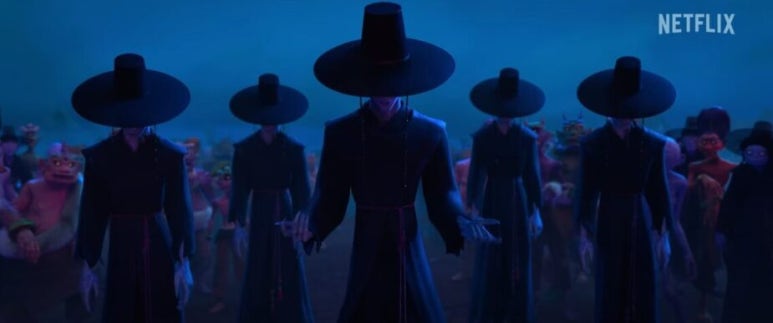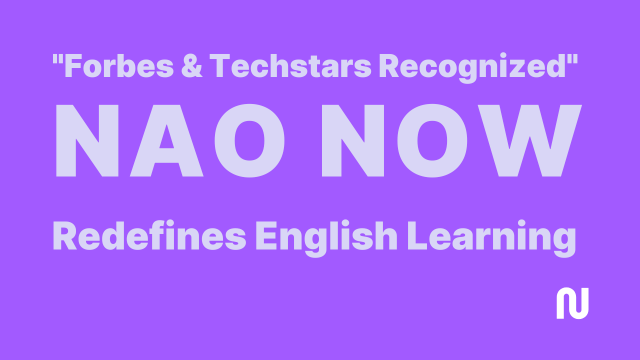Can You Learn English with 'K-Pop Demon Hunters'? 6 Real-Life Expressions







Can You Really Learn English with 'K-Pop Demon Hunters'?
The Netflix global sensation, K-pop Demon Hunters, has become a surprising new resource for English learners. It’s not just a fun animation; it’s packed with authentic, real-life English expressions and slang that you can use immediately.
The combination of engaging characters and catchy music allows children to naturally absorb the language, making it a popular 'English study animation' among parents.
In this guide, you will learn:
- 7 must-know native English expressions from Demon Hunters.
- The exact nuance and practical usage of each expression.
- A 3-step action plan for boosting English skills through animation.
- Why story-based animation learning is more effective than textbooks.
Why Animation is Better Than a Grammar Book (3 Reasons)
The era of simply memorizing grammar rules is over. When your child connects with a story and its emotions, English becomes a living, breathing skill.
1. Emotions and Context Lead to Long-Term Memory
According to the Harvard Center on the Developing Child, story-based learning simultaneously enhances language development and problem-solving skills. Instead of just memorizing, "How am I supposed to...?", your child understands the emotion and context of the phrase through Lumi’s frustrated cry in the show.
2. Repetition Becomes Natural and Fun
Children love their favorite cartoons and are happy to watch them repeatedly. Repeated exposure to the same expressions in varied contexts naturally shifts the language from short-term to long-term memory, all without the boredom of textbook drills.
3. You Learn the Cultural Nuance (The Real English)
You learn that "Sick!" means 'awesome,' not 'unwell,' and that "Keep your shirt on" means 'calm down.' This learning within a cultural context is vital, as it ensures your child speaks English the way native speakers actually do.
Real Research Backs This Up: A language acquisition study by Stanford University found that learning embedded in an emotional context is highly effective for long-term memory formation. This confirms that emotionally rich content like animation is an ideal medium for English learning.
✨ 6 Essential English Expressions from Demon Hunters
K-Pop Demon Hunters offers a treasure trove of phrases for students to practice expressing emotions and opinions confidently.
1. "I would've done it a long time ago"

- Pronunciation: I would-uv done it a long time ago. (Note the common contraction: would’ve is pronounced 'would-uv')
- Usage: Used to explain that if the conditions were right, you would have completed the action already. It carries a nuance of explanation or regret.
- Practical Example (Dialogue):
- A: Why didn't you tell me earlier?
- B: I would've told you a long time ago if I had known. (알았더라면 진작에 말했을 거야.)
- Grammar Point: The structure "would have + past participle (p.p.)" expresses a hypothetical past situation—an action that did not happen but would have under a specific condition.
2. "How am I supposed to fix the world, fix me?"

- Pronunciation: How am I suh-poezd to fix the world, fix me?
- Usage: An emotional phrase used to express frustration, helplessness, or bewilderment over an impossible task.
- Practical Example (Work/School):
- How am I supposed to finish this by tomorrow without additional support? (추가 지원 없이 어떻게 내일까지 이걸 끝내라는 거죠?)
- Key Pattern: The structure "How am I supposed to + verb?" is a frequently used pattern to express complaint or exasperation.
3. "Now I'm shining like I'm born to be"

- Pronunciation: Now I'm shining like I'm born to be.
- Usage: Used to express self-conviction or high self-esteem, suitable for presentations, self-introductions, or motivational talks.
- Practical Example (Encouragement):
- Don't doubt yourself. You're meant to be a teacher. I can see it. (자신을 의심하지 마. 넌 선생님이 될 사람이야. 나는 그게 보여.)
- Expression Extension: "Meant to be" indicates something is destined or inherently right (love, career, etc.).
4. "You dare to mock me with it?"

- Pronunciation: You dare to mock me?
- Usage: A strong, dramatic expression of anger and rejection when insulted or ridiculed.
- Practical Example (Reaction to Insult):
- You dare challenge me after everything I've accomplished? (내가 이룬 모든 것을 보고도 감히 날 도전해?)
- Note: "Mock" carries a strong nuance of scorn. For lighter teasing, use, "Are you making fun of me?"
5. "Sick!"

- Pronunciation: Sick!
- Usage: Popular contemporary slang used by native speakers to exclaim that something is amazing, awesome, or cool.
- Practical Example (Dialogue):
- A: I got accepted to my dream school!
- B: That's sick! Congratulations! (대박! 축하해!)
- Cultural Context: Although the original meaning is 'ill,' as slang, it carries the exact opposite positive meaning, widely used among younger generations since the 2000s.
6. "Get in one's head"

- Pronunciation: Get in wunz head.
- Usage: Used when someone's words or actions are distracting you and making it hard to concentrate, often due to emotional impact.
- Practical Example (Advice):
- Don't let their trash talk get in your head. Just focus on the game. (그들의 도발에 흔들리지 마. 게임에만 집중해.)
- Situational Context: Commonly used in sports, psychological thrillers, and emotional discussions.
3-Step Action Plan: Mastering English with Animation
Step 1: Shadowing for Perfect Pronunciation
- Method: Select a scene, turn on English subtitles, and repeat the characters' dialogue immediately after they speak. Mimic the emotion, intonation, and rhythm exactly.
- Effect: Develops natural pronunciation and rhythm simultaneously.
- Recommended Scenes: Lumi's emotional "How am I supposed to fix the world?" line or the confident lyrics in Huntr/x's song "Golden."
Step 2: 'Phrase of the Day' Challenge
- Method: Select one new expression daily and actively use it in real-life family conversations.
- Monday: "You got this!" (Use for encouragement.)
- Tuesday: "Sick!" (Use when seeing something cool.)
- Wednesday: "Keep your shirt on." (Use when someone gets angry.)
- Tip: Write the phrases on sticky notes and place them in common areas. At dinner, share who used the phrase most naturally.
Step 3: Role-Play and Contextual Practice
- Method: Recreate scenarios from Demon Hunters and practice dialogue.
- Example Situations:
- Act like Huntr/x, shouting: "We have to crush that stage!"
- Express a worry in English, like Lumi would.
- Effect: Develops the ability to use expressions correctly within a specific context, which is the key to real fluency, not just memorization.
❓ Frequently Asked Questions (FAQ)
💡 The NAO NOW Difference: Real Conversation, Real Confidence
K-Pop Demon Hunters is more than just an animation; it’s a textbook filled with the living English that native speakers actually use.
NAO NOW harnesses this principle by providing real-time conversation classes with 1:1 mentors. We don't just review vocabulary; we create an immersive environment where your child can use phrases like "I would've done it" and "How am I supposed to...?" in authentic dialogue, receiving instant feedback to build their confidence and fluency.
The easiest way to boost your child's English confidence: Let them speak about what they love.
Start speaking confidently today with NAO NOW.


.png)





.png)
.png)
.png)

.png)